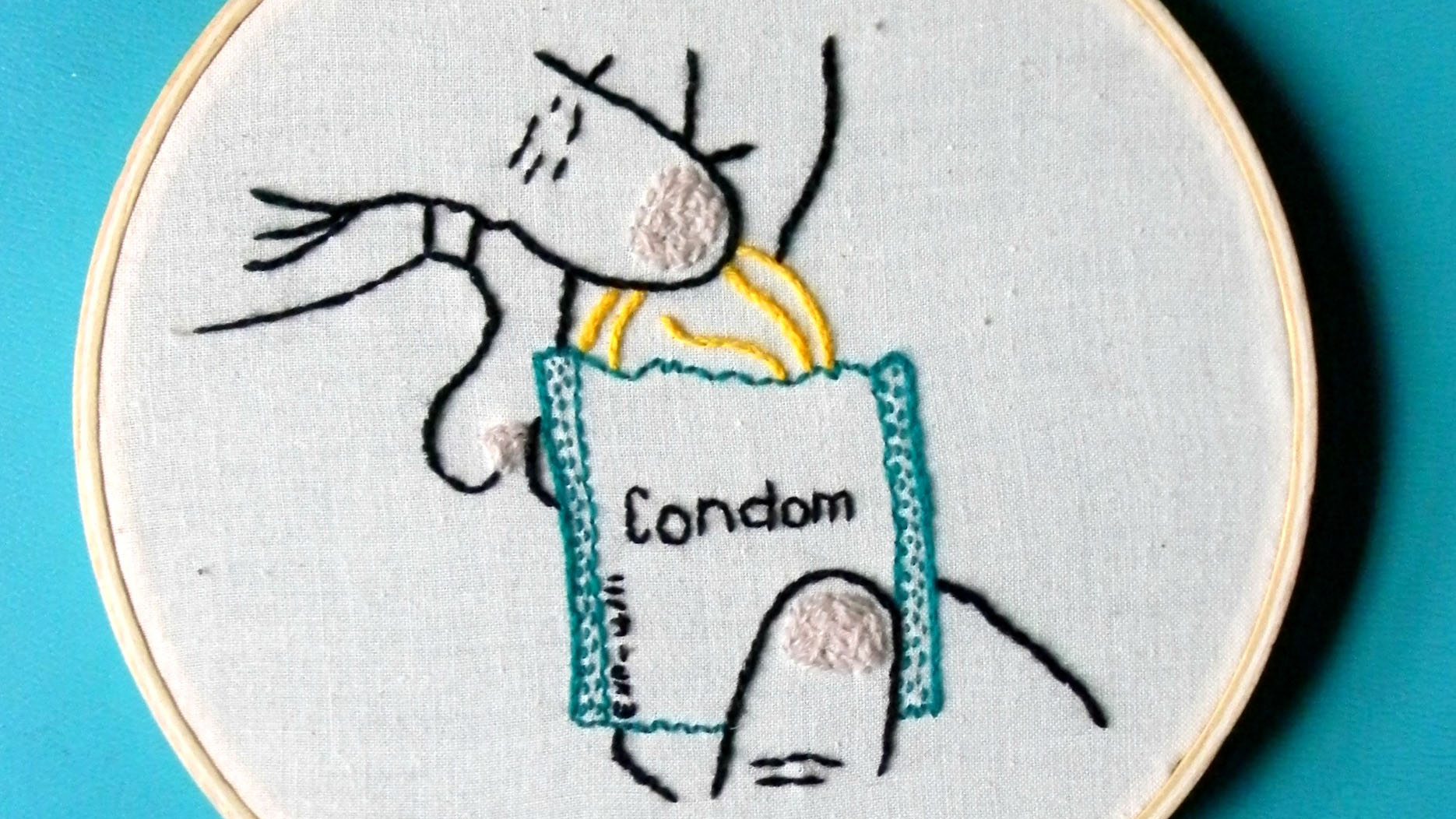If you follow religion news, particularly on blogs and Twitter, it'd be easy to assume that evangelicals are obsessed with birth control. In 2013, we saw them condemn the expanded availability of the morning-after pill, call for religious exceptions to contraception coverage, and debate whether oral contraceptives can cause abortion.
But that's the news, the policy level. When it comes to our churches, youth groups, and marriage-prep courses, birth-control methods don't get top billing. In fact, it seems they rarely get mentioned—good or bad.
Take this from a married, churchgoing 25-year-old with two wonderful but unplanned children.
In the contraceptive debate, the Catholic Church's stance rings loud and clear, but evangelicals have a far less direct approach. The Catholic Church relies primarily upon the Humanae Vitae, a document that outlines doctrine on marriage, parenthood, and the rejection of most forms of birth control. With no such consensus, the evangelical church remains disunified and without a clear voice on these subjects. The Pill? Condoms? Natural family planning?
Our lack of discussion on this topic doesn't sit well with the next generation of husbands, wives, and parents. After all, millennials want to know how faith influences the more basic, practical aspects of their lives. "One of the specific criticisms young adults frequently make about Christianity is that it does not offer deep, thoughtful, or challenging answers to life in a complex culture," says Barna Research's David Kinnaman.
My husband and I grew up in an age where a plethora of contraceptive options were available to us, but when we decided to forgo birth-control pills for health reasons, we didn't know what to try next.
Religious and secular 20-somethings alike are in a similar predicament. A recent survey at Duke University documented that almost a third of women between the ages of 15 and 24 have relied on the withdrawal method as their primary birth control. In response to the study, New York Magazine published an article entitled, "No Pill? No Prob. Meet the Pullout Generation," which details the disillusionment of the millennial generation with the Pill.
We spent the week of our honeymoon raiding the aisles of CVS for every barrier method. We considered these the "safer" route in terms of both our theological convictions and my health issues. After long discussions on our theology of sex, we felt that barrier methods provided assurance that birth control wasn't being used as an abortificient.
There is some debate about whether certain forms of birth control have the potential of thinning the uterine lining, thus preventing implantation of a zygote (fertilized egg), so we chose to avoid hormonal methods. I was shocked to read the tiny leaflets that accompanied spermicides, sponges, and condoms. Not only were they potentially ineffective, they were also confusing to administer.
Birth-control issues have yet to come up in any of the local churches I've been part of, whether through pastoral leadership or fellowship with other believers. Only recently, through online media and blogging, have I witnessed evangelicals take an active interest in birth control. Perhaps this is because online media allow potential anonymity and honesty in a way that the church has not produced organically.
Evangelical-turned-Catholic writer Brantly Millegan and his wife, Krista, approach contraception through the idea that we "have been made by God with purpose," which applies to our sexuality. Their convictions led them to believe that defending the intended purpose of sex meant refusing contraception. While we don't feel convicted to approach contraception in the same manner, my husband and I found their reflections to be worthwhile in prompting our own conversations about our responsibility to live out our sexuality faithfully.
And beyond our spiritual convictions, there are also practical faith matters regarding health and hormones. Many of my close friends have struggled to make birth control work for them. My close friend spent years on birth control, only to end up with health issues and a surprise pregnancy when it was recommended that she discontinue use of the Pill.
What does addressing contraception in the church look like? I would posit that it begins with honest conversations and sharing in context of other believers and Scripure. Psalm 127:3 speaks of children as a blessing and also as a reward: "Children are a heritage from the Lord, offspring a reward from him." At the same time, Paul himself said that he wished everyone could be single (1 Cor. 7:7) so as better to serve the Lord. And yet, God communicates in Genesis that it's not good for a man to be alone.
So which is it? John Piper discusses this issue as "Paul enunciating a qualification of creation ordinance with redemption ordinance." In other words, we live in a fallen world that needs single people, married people, childless people, and people with children to bring about the redemptive kingdom of God.
For those who are married and considering family planning, Proverbs cautions us to consider wise counsel in life matters, which implies that family planning can be exactly that: planned. "Without counsel plans fail, but with many advisers they succeed." (15:22)
Starting with these verses and others, we might just be able to create an evangelical narrative on birth control and a place where young people can find their questions, reflections, and thoughts to be both valued and addressed.
Briana Meade is a freelance writer and blogger. She is a contributor at Early Mama, where she writes about young motherhood. She graduated from Wheaton College in 2010 and taught with Teach For America in Chicago before moving to North Carolina with her now family of four. Find her writing at brianameade.com and follow her on Twitter @BrianaMeade.









